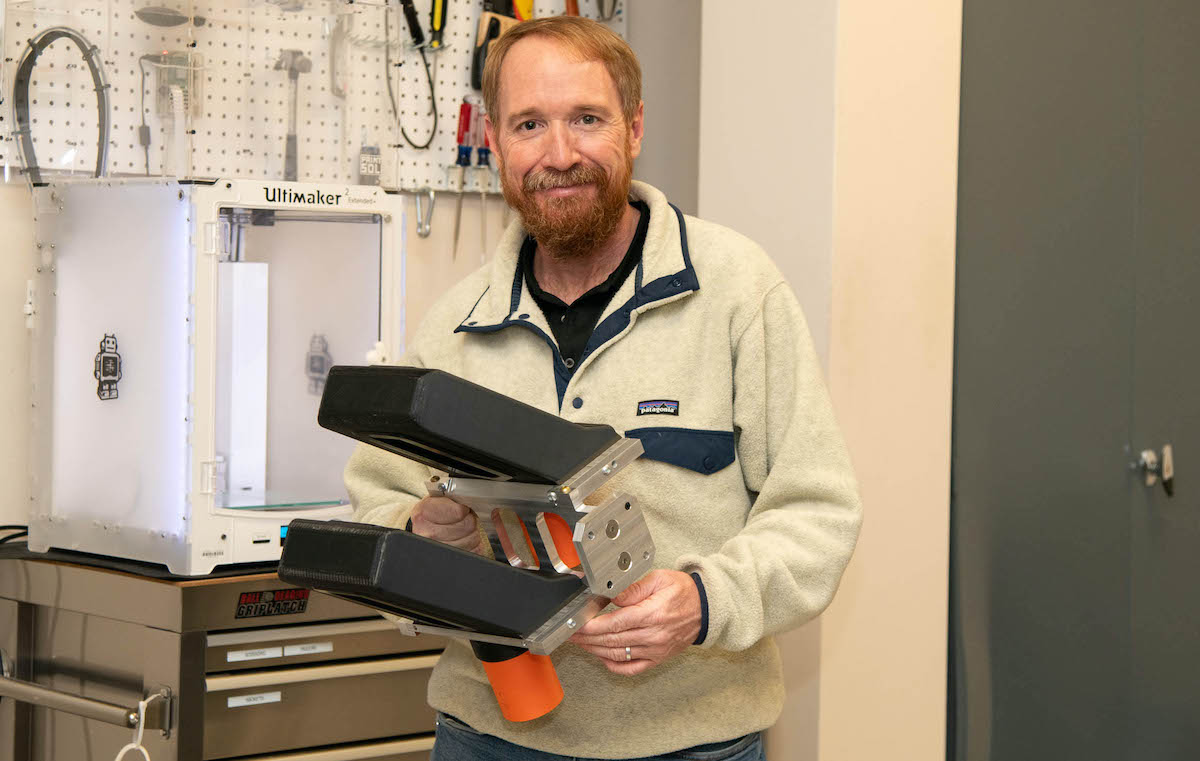ISU physics Professor McNulty gets $539k grant to support students, researchers to study fundamental nuclear structure
November 24, 2020

POCATELLO – Idaho State University’s Dustin McNulty, associate professor of physics, has received a $539,000 three-year grant that will continue to support his lab’s students and research that “will enhance our understanding of fundamental nuclear structure and provide a powerful search for potential new physics beyond our present knowledge.”
McNulty’s research essentially supports fundamental experimental physics projects that take place primarily at Jefferson Lab, formally known as the Thomas Jefferson National Accelerator Facility, a U.S. government laboratory located in Virginia.
“But I use facilities here at Idaho State like the Idaho Accelerator Center and even sometimes collaborate with INL to perform the research that we do, which is primarily developing detector systems for these experiments,” McNulty said.
McNulty received the funding from the U.S. Department of Energy’s Office of Science Financial Assistant Program to help him continue his ongoing research that has had continuous funding since 2012, which up to that point had come from the National Science Foundation.
Idaho State physics has developed a research niche by developing “novel,” specialized particle detector systems that intercept and count tiny, subatomic charged particles.
“We are measuring how big a nucleus is, so it is a pretty basic question,” McNulty said. “So we have a nucleus that has many more neutrons than protons and the theory is that the extra neutrons bubble to the surface and form a skin, what's called a neutron skin, and it’s never been measured before and we are measuring it.”
Though the object of his research is very small, to put it mildly, the implications of it are very large.
“It tells us things about neutron stars and other interesting physics, that gives us a basic understanding of the universe,” he said. “And looking into the future, this grant primarily supports a project that is trying to search for physics beyond what we know. Now, we are doing a very precise measurement on a quantity that is very well understood theoretically but no one has ever measured it so precisely. If we find a statistically significant difference between the theory and the measurement, we may be on to some new physics that we don't know about.”
The new grant continues to fund tuition and salary for three years for two graduate students under McNulty’s tutelage and it provides support for two undergraduate students per year for three years. The ISU professor has a doctoral student who lives in Virginia who is now working on this project. He had another doctoral student who worked on these related projects that graduated last December and three master’s students have graduated from ISU who have worked on this research.
“This grant is another in the line of multi-years of research projects in the Department of Physics that has been a pipeline for getting undergraduates, master’s and doctoral students into basic physics research,” McNulty added.
“I have about 15 students I've worked with over the last seven years or so and I know where most of them went and the jobs they got. A lot went to grad school and some continued to work with me in grad school.”
Not all the students working in his lab come from physics backgrounds – some have come from computer science, engineering and other disciplines.
The official title of his grant is “Precision Electroweak Probes of Neutron-rich Matter and BSM Physics.”
Categories:
